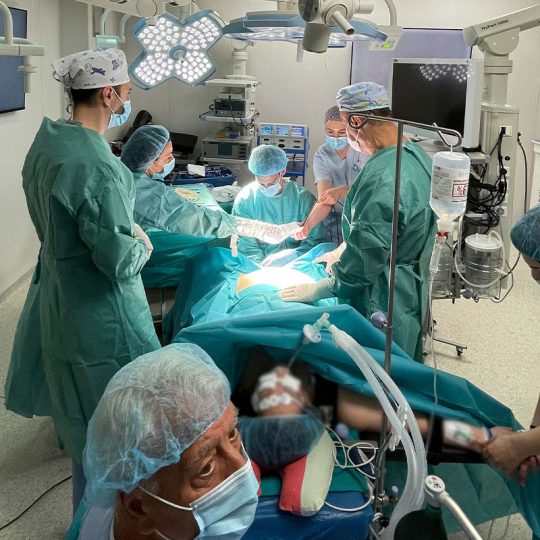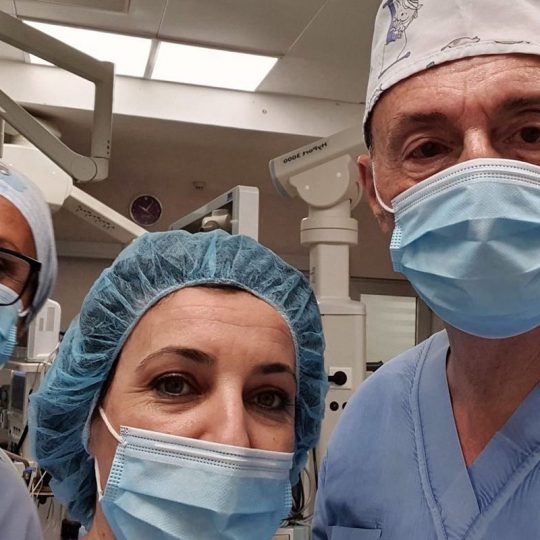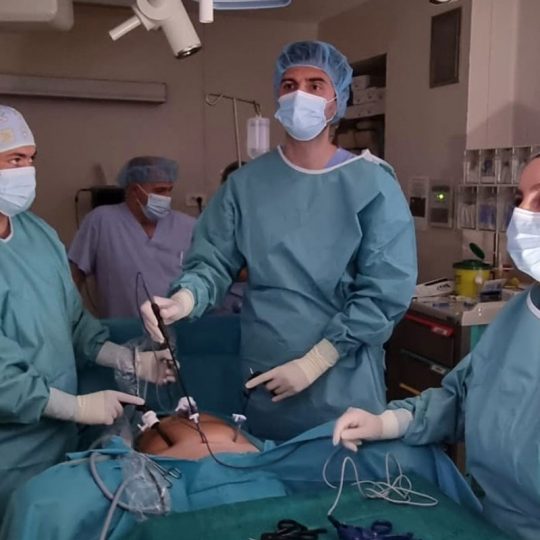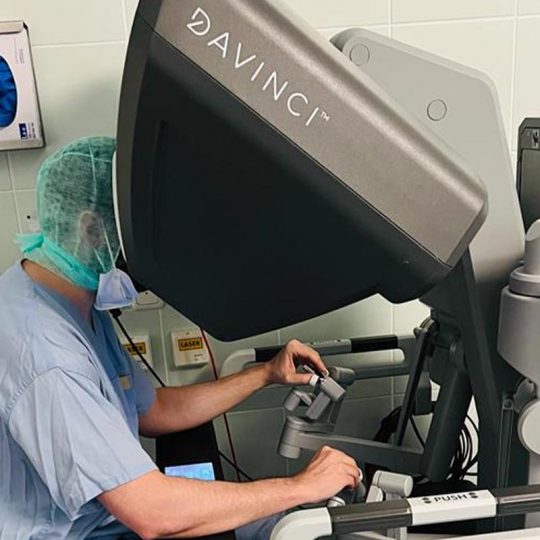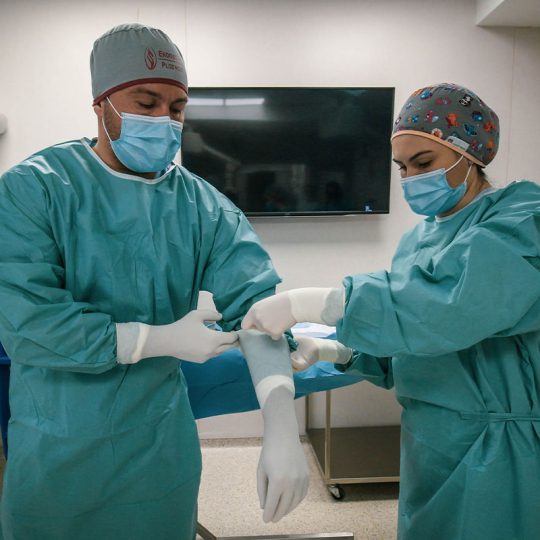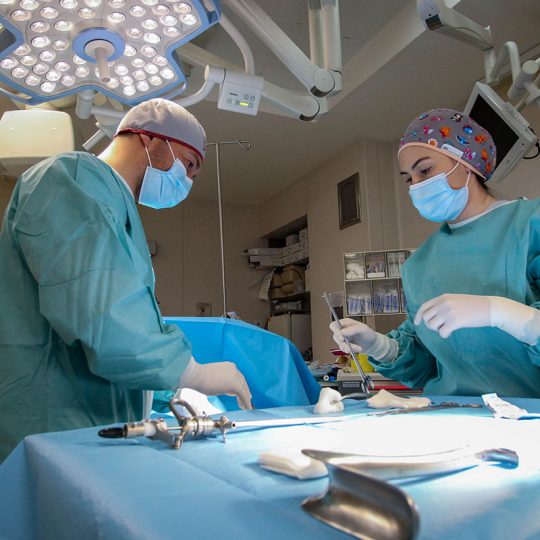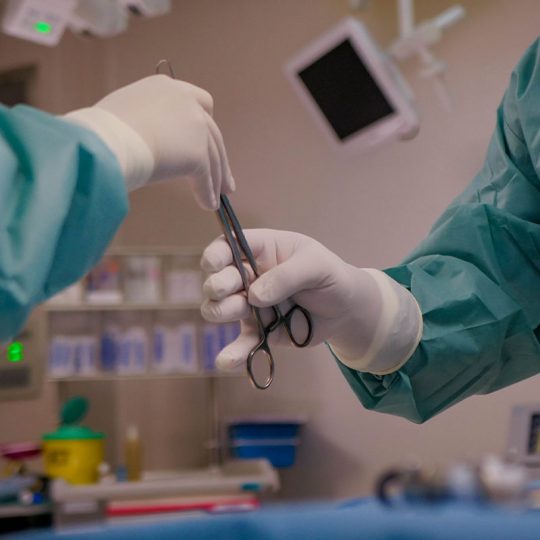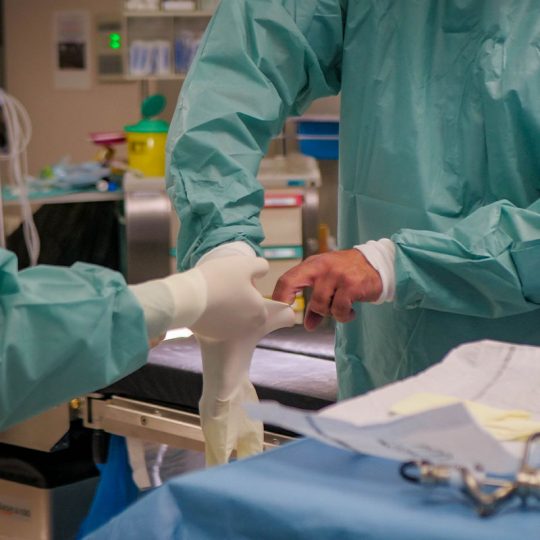Selective Feticide
Selective Feticide
Selective feticide, also known as selective reduction, is an invasive procedure performed to reduce the number of fetuses in a multiple pregnancy for medical or other specific reasons.
When is Selective Feticide Performed?
- This procedure is typically carried out in the early stages of pregnancy, usually during the first trimester or the beginning of the second trimester, up to 14 weeks of gestation.
- It is more commonly indicated in pregnancies resulting from in vitro fertilization (IVF) but may also be performed in spontaneously conceived multiple pregnancies when necessary.


Selective feticide may be recommended in multiple pregnancies at Plodnost Hospital due to:
- Discordance in structural, chromosomal, or genetic abnormalities – When one fetus is developing normally while another has a significant pathological condition (e.g., Down syndrome, severe structural defects, or other genetic disorders).
- Excessive risk of preterm birth – The risk of premature delivery increases with the number of fetuses:
- 10% in twin pregnancies
- 35% in triplet pregnancies
- Higher in pregnancies with four or more fetuses.
- Complications specific to multiple pregnancies, such as:
- Twin-to-twin transfusion syndrome (TTTS)
- Severe fetal growth restriction in one fetus
How is Selective Feticide Performed?
- The procedure is performed under continuous ultrasound guidance using a needle inserted through the mother’s abdomen.
- The specific fetus to be reduced is determined in advance through ultrasound examination and, if necessary, invasive prenatal testing.
- A medication is injected into the fetal heart, leading to termination of the selected fetus.
Safety and Risks
- The procedure is relatively painless, does not require special preparation, is completed within a few minutes, and poses no practical risk to the mother.
- However, after the procedure, the risk of spontaneous miscarriage increases to 7-12%, depending on:
-
- The reason for performing the procedure
- The number of fetuses reduced
- The gestational age at the time of the intervention.
Due to these risks, selective feticide is only performed after obtaining signed informed consent from the pregnant woman.
For more information about selective feticide at Plodnost Hospital, please consult your doctor or contact the hospital reception.
Gynaecology and Obstetrics Doctors

Prim. D-r Tashe Trpchevski
Consultant Gynaecologist and Sub-Specialist in Reproductive Medicine and Surgery

D-r Hristijan Trpchevski
Specialist Gynaecologist & Obstetrician

D-r Vladimir Popovski
Specialist Gynaecologist & Obstetrician

D-r Blagojce Obednikovski
Specialist Gynaecologist & Obstetrician

D-r Kristinka Pajakovska
Specialist Gynaecologist & Obstetrician

D-r Marija Hristovska
Specialist Gynaecologist & Obstetrician

D-r Vladko Gjorgjievski
Specialist Gynaecologist & Obstetrician

D-r Sotir Ropi
Specialist Gynaecologist & Obstetrician

D-r Aleksandar Jovanovski
Specialist Gynaecologist & Obstetrician

D-r Ana Vangelov
Specialist Gynaecologist & Obstetrician

D-r Sanja Milunovikj
Trainee Specialist Gynaecologist & Obstetrician
Medical-Surgical Nurses

Emilija Srbinoska
Responsible Medical Surgical Nurse

Meri Mihevska
Medical Nurse

Natasha Momiroska
Medical Nurse

Zaneta Veselica-Stefanovska
Medical Nurse

Maja Miloshevska
Medical Nurse

Biljana Dimitrovska
Medical Nurse

Sonja Aleksovska
Medical Nurse

Nikolina Risteska
Medical Nurse
Medical Nurses Midwifes

Merlinda Drala
Responsible nurse, gynecology and obstetrics department

Nadica Neshkovski
Medical Nurse

Jasmina Bozinovska
Medical Nurse

Aleksandra Dimovska
Medical Nurse

Fiona Kelja
Medical Nurse

Irena Talevska
Medical Nurse

Hristina Bumbaroska
Medical Nurse

Martina Karanfilovska
Medical Nurse

Dijana Boshevska
Medical Nurse

Sonja Fuzevska
Medical Nurse

Zaneta Vasilevska
Medical Nurse

